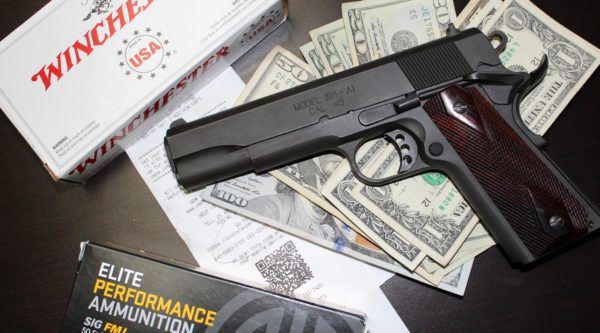
Despite the assertion by a leading Democratic Colorado legislator, Centennial State gun owners are not happy about a proposed excise tax on firearms and ammunition to fund the state’s crime victim services fund and other programs for victims, witnesses and law enforcement.
KDVR News in Denver reported that State Rep. Monica Duran, the Democrat House Majority leader, said during a Finance Committee discussion about House Bill 24-1349, “I think voters would be happy to pay a little extra when it comes to their guns and ammunition, whatever they are buying, knowing that funding is going directly to three things: crime victims, school safety and mental health.”
Not so fast, say gun owners. In a telephone chat, Rocky Mountain Gun Owners Executive Director Taylor Rhodes asserted the addition of another tax could make firearms too expensive for people on fixed incomes, and it is simply improper to put such a tax on a tool “that is constitutionally protected.”
He noted one interesting thing about the bill is that there are no Senate sponsors. Rhodes suggested this may be because it is an election year and Senate Democrats do not want an issue which could cost them in November. Because it is a tax-related issue, even if the governor signs it, the issue will be on the ballot this fall.
Newsweek is reporting that RMGO Operations Director Ian Escalante, in, a video posted on social media, called the proposal “absolutely insane.”
Critics contend this proposed tax would create as precedent holding law-abiding gun owners financially responsible for crimes they didn’t commit.
TGM reached out to Rep. Duran’s office for comment. Her office did not reply.
Republican State Rep. Ron Weinberg posted a message on “X” calling the measure “an obscene example of government overreach. This bill WILL NOT lower gun crime. It will take guns away from law-abiding citizens who have the God-given right to protect themselves.”
The bill, which passed the Finance Committee on a 6-5 vote, now goes to the Appropriations Committee.
According to a synopsis of HB 24-1349, “The bill requires all money received and collected in payment of the excise tax to be transmitted for ultimate deposit in the firearms and ammunition excise tax cash fund (fund) created in the bill. All such money and any fund investment earnings must then be transferred as follows:
- The first $45 million in the first fiscal year and that amount as adjusted for inflation or deflation in each fiscal year thereafter must be transferred to the Colorado crime victim services fund (victim services fund) in the division of criminal justice (division) of the department of public safety for crime victim services grants;
- The next $5 million in each fiscal year must be transferred to the victims and witnesses assistance and law enforcement fund for local judicial districts;
- The next $5 million in each fiscal year must be transferred to the victim services fund for mass tragedy response and prevention programs; except that any money that is transferred but not spent or encumbered for that purpose in a given fiscal year may be used by the division for additional crime victim services grants;
- The next $4 million in each fiscal year must be transferred to the wildlife cash fund in the division of parks and wildlife of the department of natural resources for administration and enforcement of wildlife laws against the illegal use of firearms;
- The next $2 million in each fiscal year must be transferred to the wildlife cash fund for programs to support shooting and shooting range safety; and
- Any remaining money in each fiscal year must be transferred to the victim services fund for crime victim services grants.”
Alan Gottlieb, chairman of the Citizens Committee for the Right to Keep and Bear Arms, indicated Colorado gun owners would be justified in questioning why they are expected to provide revenues to support crime victims’ programs.
The federal government currently collects a 10- or 11-percent excise tax on firearms and ammunition sales, through a program dating back to the 1930s, called the Federal Aid to Wildlife Restoration Act, also known as the Pittman-Robertson fund. Revenues from that tax go directly to wildlife programs, however, not other projects. The monies are apportioned to state wildlife and natural resource agencies.
But the Colorado proposal essentially penalizes gun owners for merely exercising their rights protected by the Second Amendment and the Colorado State Constitution.